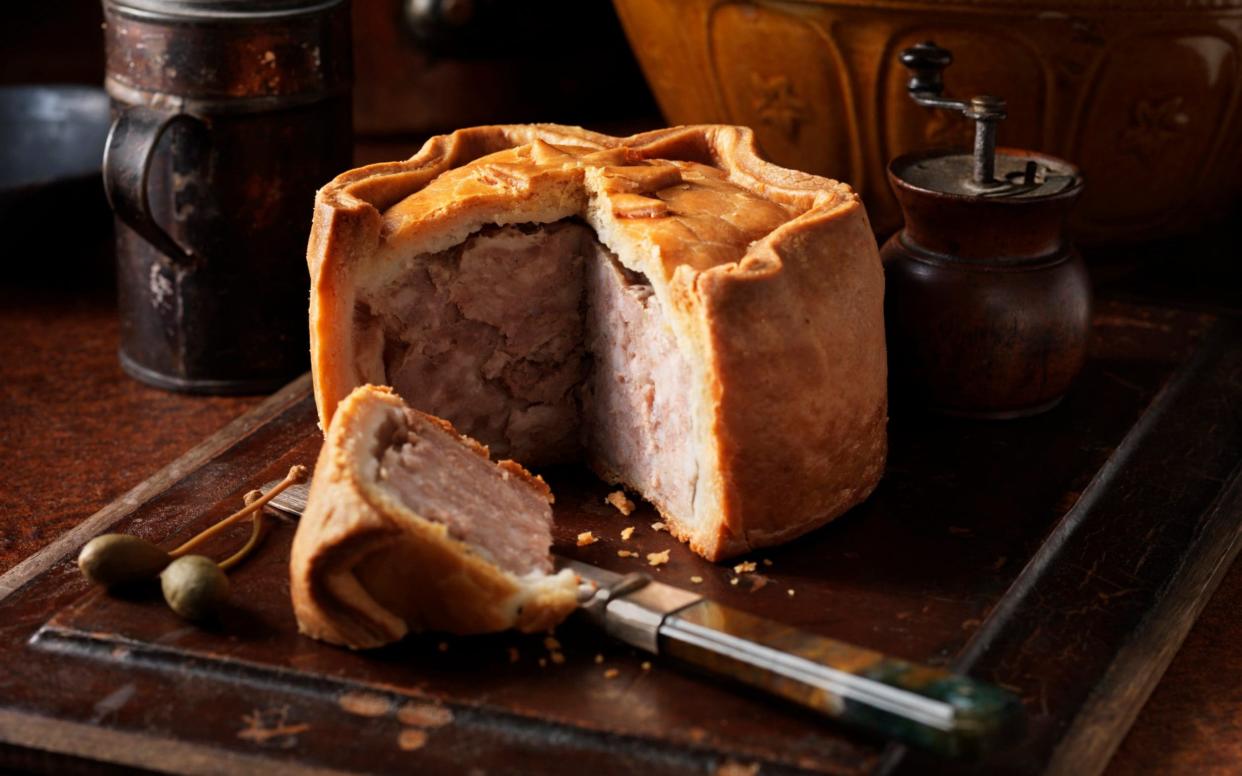Tensions rise at Irish border over EU inspectors with a finger in too many pies

“Burdensome” checks on supermarket pork pies and ham by European Union inspectors risks exacerbating tensions in Northern Ireland, a Cabinet minister has said, calling for the EU to demonstrate common sense.
Brandon Lewis, the Northern Ireland Secretary, warns that the damage caused by the EU’s “unilateral move to put a hard border on the island of Ireland for vaccine exports in January cannot be overstated”.
Ministers are increasingly worried about the way that the European Union is enforcing checks when goods move from Great Britain and Northern Ireland.
The checks under the terms of the Northern Ireland Protocol, signed as part of the terms of the UK’s exit from the EU, are meant to stop goods crossing the EU’s border into the Republic of Ireland.
However, the UK Government has complained that the EU is carrying out 20 per cent of its external border checks at the so-called “sea border” in the Irish Sea.
Calling on the EU to “listen to and take into account the experience of people and businesses”, Mr Lewis says that EU checks were now so extreme that supermarket chain Sainsbury's has difficulties sending its goods to its own shops in Northern Ireland – even though there are no Sainsbury's stores in Ireland.
“At the moment a big supermarket, like Sainsbury’s, cannot send a box of pork pies or packet of ham from one of its stores in England, Wales or Scotland to another branch in Northern Ireland without going through a burdensome regime of checks and processes to allow it to cross the Irish Sea,” he says.
“In theory, this is to make sure that there is no risk of 'non-compliant' goods ending up in the EU’s single market, via Northern Ireland. Except Sainsbury’s does not have any stores in the Republic of Ireland – so such checks are unnecessary.
“They are attempting to mitigate a risk that does not exist. The sooner the EU is able to find new solutions and embrace a more pragmatic approach the better.”
He adds: “It is our hope that the EU will embrace a more constructive approach to the Protocol so that it can support the peace process, be implemented in the proportionate way that we always intended, and ensure the people of Northern Ireland can continue to see the benefits of continued prosperity and stability. That is the only way it can be sustained.
“I would urge the EU to take the proportionate, risk-based approach that is needed so that we can all look forward to a more positive and optimistic future for the whole of Northern Ireland – one that fully embraces all that it has to offer the rest of the UK and the world.”
War of words with Dublin
Mr Lewis’s comments came as a war of words broke out with Dublin, with ministers incensed by a report from respected RTE journalist Tony Connelly that the UK was “dangerously fuelling tensions” in the province.
In a column on Saturday, Mr Connelly wrote: “The view in Dublin is that UK rhetoric is dangerously fuelling tensions, and raising expectations that the Protocol will be ditched or radically changed.”
He added: “Warning about violence during the loyalist marching season is a subtler part of the message. David Frost, the UK’s Brexit minister, told the House of Commons European Scrutiny Committee on Monday: ‘We all know that the late spring and summer in Northern Ireland can sometimes be turbulent. Such rhetoric is seasoning the pot that unionism is stirring.’”
A government official said these suggestions were “just not true. We have always wanted to ensure that changes and any mitigations were made precisely to take the sting out of growing loyalist agitation and anger, rather than for any selfish or narrow political gain”.
The official added: “We are definitely of the view that that has undermined broader support for the Good Friday Agreement. The Irish government has talked up the prospect of violence for a very long time and we are now left to deal with the consequences of that.”
The official added that there was “still a lot of anger across Northern Ireland but particularly in unionist and loyalist communities” about the way Irish ministers had suggested border posts on the island of Ireland would raise tensions.
In 2018, at the height of the Brexit talks, then-Irish Prime Minister Leo Varadkar warned EU leaders that a return to a hard border would threaten a return to violence in Northern Ireland.

